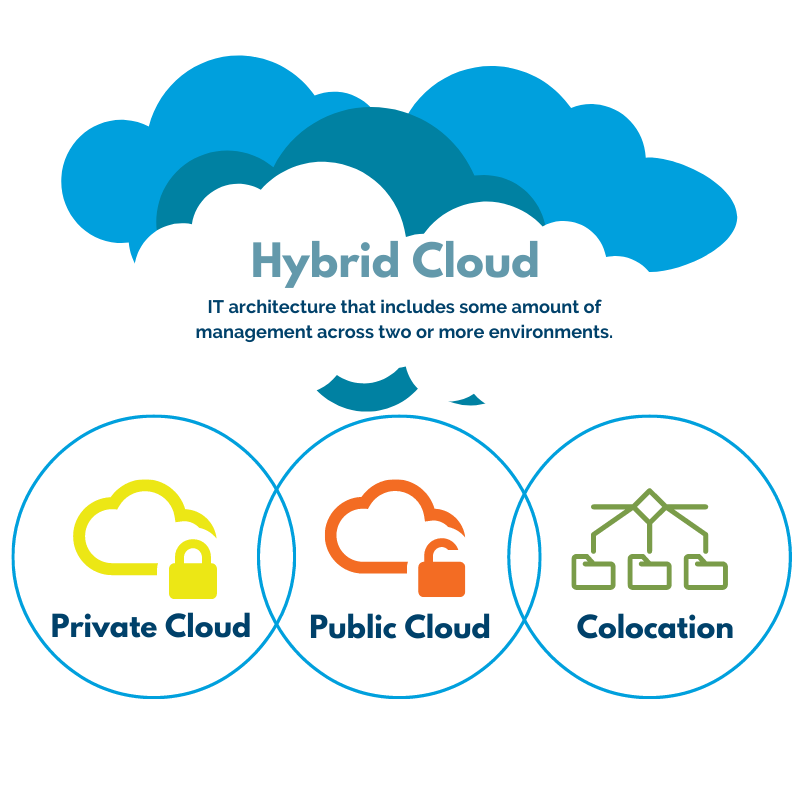Determining what type of cloud is the best fit for your business can take a considerable amount of research and expertise. While undergoing your discovery process, you will likely find that your business requirements do not fit into the frame of just one type of solution. A suitably deployed cloud can improve your overall business model and should not limit your capabilities. To gain the full value of the cloud and mitigate as much risk as possible, you must determine the infrastructure mix that is most advantageous to your business. Forward thinking companies are increasingly turning to hybrid cloud solutions, which offers a level of flexibility different than you can find with one type of infrastructure.
solution. A suitably deployed cloud can improve your overall business model and should not limit your capabilities. To gain the full value of the cloud and mitigate as much risk as possible, you must determine the infrastructure mix that is most advantageous to your business. Forward thinking companies are increasingly turning to hybrid cloud solutions, which offers a level of flexibility different than you can find with one type of infrastructure.
Hybrid cloud is an IT architecture that includes some amount of management across two or more environments. The numerous benefits of deploying a hybrid cloud infrastructure will vary depending on the individual business, but companies typically find that they benefit from the following:
- Reduced Cost: The hybrid cloud can be a cost-efficient option because it is custom fit to your resource needs. In addition, fewer on-premise servers means less power usage at higher rates and a reduced need for direct employee monitoring, freeing them up for more strategic initiatives to add increased value to the business.
- Reliability: A well architected hybrid environment delivers improved dependability with diminished possibility of downtime. Building in redundancy will ensure that if there is a disaster your business can continue with limited interruption.
- Flexibility: Using hybrid cloud means you have the benefits of more than one infrastructure. This enables you to customize your environment to your individual needs.
- Scalability: Since hybrid cloud is more than one environment, businesses can take advantage of the scope of multiple platforms. This can enable you to scale your resources according to your needs.
- Control: Companies can modify the private end of their hybrid cloud model to their specific needs and adjust them as they see fit. The internal IT staff can maintain control over the day-to-day operations or offload as needed to increase efficiency and leverage external cloud expertise.
- Remote Work: Hybrid cloud gives companies the ability to support remote workers with on-demand access to data.
- Speed and Agility: Hybrid cloud allows companies to increase their speed to market by optimizing IT performance and delivering the agility required to meet shifting business requirements.
The hybrid cloud gives businesses critical control over their data and applications. Hybrid cloud delivers a custom-fit infrastructure and is a solid option for organizations struggling to find everything they require in either public or private cloud. To learn more about what infrastructure is best suited for your business, contact Data Canopy today.



